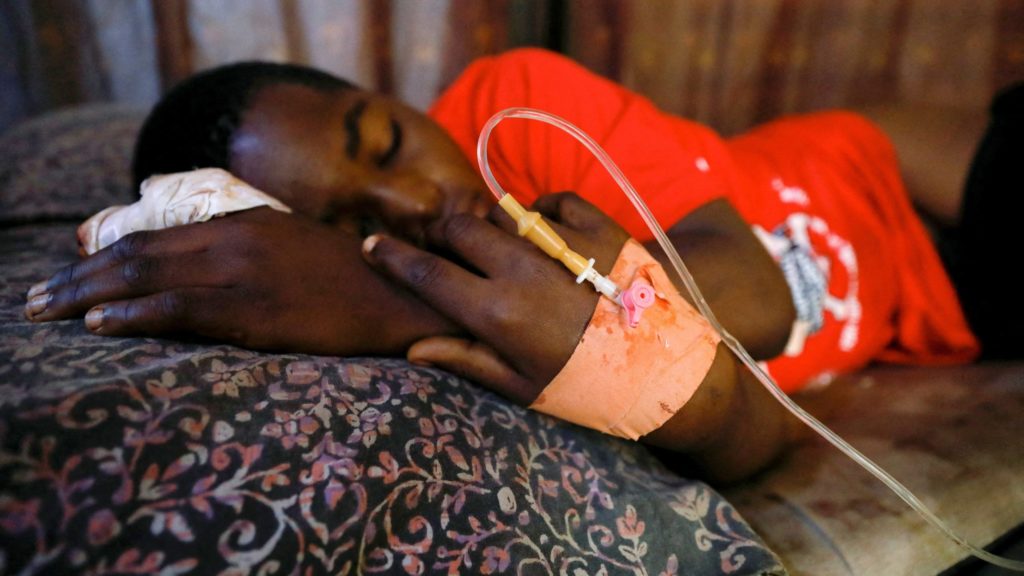A leading Catholic official in Africa has praised a newly approved Bill in the U.S. Congress to giving funding to promote religious liberty, calling it “a significant shift in US foreign policy.”
The State, Foreign Operations, and Related Programs Appropriations Bill is designed to support religious freedom around the world, and specifically increases funding to support “religious freedom, human rights, atrocity investigation and documentation, and humanitarian assistance for communities impacted by violence in Nigeria, including through faith-based organizations and nongovernmental organizations from the affected communities.”
The bill includes $10 million earmarked for Nigeria, particularly in the Middle Belt and Benue State.
Johan Viljoen, Director of Denis Hurley Peace Institute (DHPI) of the Bishops’ Conference of Southern Africa said the adoption of the bill signifies a significant shift in US foreign policy with regard to defending religious freedom in Nigeria.
“Together with International Christian Concern, ICC, we have for the past three years been concerned about the fact that the U.S. State Department has dropped Nigeria from the list of Countries of Particular Concern for persecution of religious freedom,” he told Crux.
He said that omission was particularly concerning given that out of the 5,500 Christians killed because of their faith in 2022, 90 percent were Nigerians.
According to the International Society for Civil Liberties and the Rule of Law (Intersociety), an NGO based in eastern Nigeria, at least 52,250 Christians were killed between 2009 – when Boko Haram began its murderous campaign – and 2021.
The country has long wrestled with terrorism committed by Boko Haram, ISIS-West Africa, Fulani militias, and other armed bandit groups.
“These terrorists regularly resort to torture and inhuman punishments to carry out their activities,” says International Christian Concern, ICC in a report published July 10 entitled “A Case for Nigeria’s Country of Particular Concern Status.”
The report details disturbing tales of the suffering Christians in Nigeria have had to incur in the hands of terrorists.
“In areas where [Fulani Militants] have succeeded in taking over communities, they use hunger and starvation to compel women into submission [or sexually assault them].” The report quotes Rev. Joseph Hayab, Chairman of the Christian Association of Nigeria in Kaduna State as saying.
“The Fulani herdsmen who hold extremist views believe that wherever they go with their cattle is land that Allah gave them. So, anyone who gets in their way is getting in the way of Allah. Since the Fulani do not own land, they let the cows graze wherever – and when that is on the property of Christians, the farmers are killed,” report states, citing on ground testimonies.
It says “everyone deserves the fundamental human right to freely practice their religion or belief without fear of punishment or retribution. Each of us has an innate human dignity that affords us the freedom to choose or change our religion or to hold no religion at all.”
The killings have continued and spread in the African country of some 200 million inhabitants, who are almost evenly divided between Christians and Muslims.
Secretary of State Antony Blinken has been given 30 days to explain why Nigeria, despite its concerning record of Christian persecution, was not designated as a Country of Particular Concern.
Viljoen told Crux that Nigeria is “clearly a country of major concern regarding the persecution of religious freedom.”
He said the U.S. bill to support religious freedom in Nigeria comes as a welcome respite to the country’s Christians.
“It is very, very good that Nigeria in particular has now been selected for this legislation and I think it is particularly good that they specified Benue in the legislation. Benue state has been very hard hit by Fulani herdsmen, attacking Christian communities, and we are always concerned about the fact that globally, almost all attention was focused on Borno State, Boko Haram and the north. So this is a very good development,” Viljoen said.
He said he was particularly gladdened that the legislation says that faith-based organizations will be empowered financially.
“Usually foreign aid bilaterally goes from government to government. We’ve seen in countries like Mozambique and Nigeria. Millions get poured into state coffers for development aid and it just disappears into the pockets of politicians. We have been saying for years that if foreign governments want to see significant impacts on local communities, they should be funding faith-based organizations who are on the ground and who work with the people,” Viljoen told Crux.
The ICC report urges the U.S. to return Nigeria to the list of Countries of Particular Concern.

